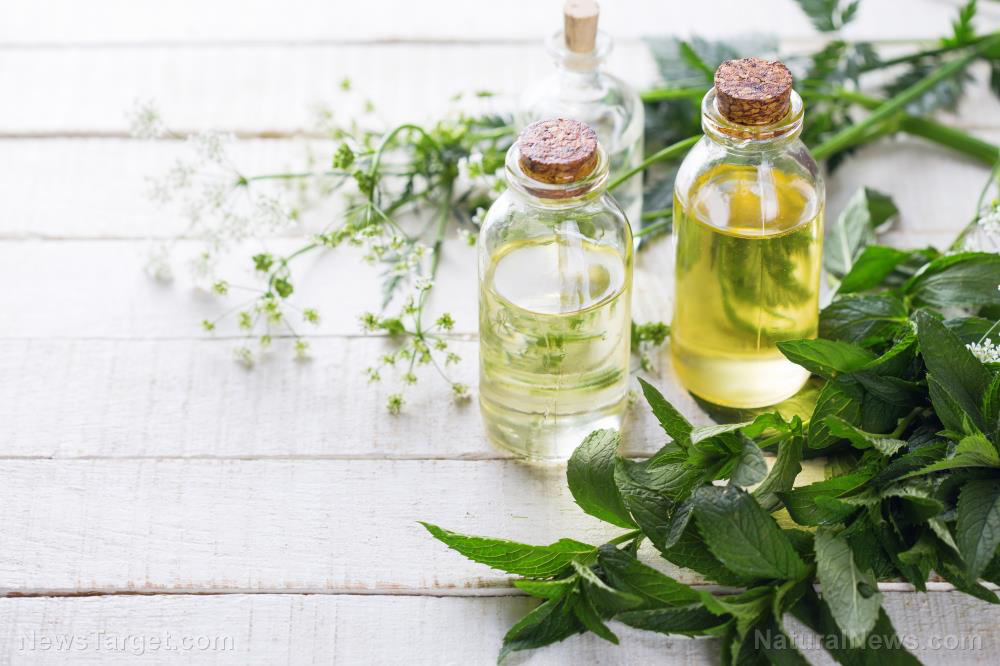7 essential oils that can ease breathing
12/13/2018 / By Edsel Cook

Are you having trouble with your breathing? A few whiffs of the right essential oils can clear up your congested airways and improve the muscles involving in the process, an article in Organic Spa Magazine reported.
“Breathing passages, like sinuses, trachea and lungs, have to be clear for efficient breathing,” said Hope Gillerman in her book Essential Oils Every Day. “And some essential oils can help relax the deeper breathing muscles enough to release them from their locked state.”
Gillerman recommended a number of essential oils for alleviating specific breathing problems. She also shared two different but equally effective ways of applying those remedies. (Related: 4 Essential oils that relieve a sinus headache.)
Improve your breathing with these effective essential oils
If a combination of fatigue and congested nasal cavities is hampering your breathing, you should get eucalyptus essential oil. It has been shown to fight bacteria and viruses that cause these symptoms.
This essential oil also removes congestion in the nose. Last but not least, it suppresses inflammation. It would be very helpful during cold and flu season.
If it is your chest that feels congested instead of your nose, you have three essential oils to choose from: Fir, pine, or spruce. The oils from these related trees are used in traditional chest rubs, remedies that are used to loosen up the deeper breathing muscles.
These three oils are good for improving symptoms of allergies, asthma, and coughs. Furthermore, they can restore your energy when you feel tired and down.
If your mind is unfocused because of distracting pain in your stiff neck and strained shoulders, Gillerman recommended peppermint essential oil. It is a good way to restore your energy after spending long periods of time in a certain position without moving much. It also improves your mood.
Last but not least, excessive amounts of stress and worry can cause you to have difficulty breathing. When that happens, apply sandalwood essential oil to yourself in order to help your chest breathing muscles loosen up.
In ancient times, sandalwood was used in two ways. It was burned during periods of meditation to spread its essential oils through the air. It could also be applied directly to the chest.
How to apply the essential oil
Before starting, identify the condition of your malady. Are you feeling fatigue? Can you feel congestion in your chest or in your nasal passage? Are the muscles in your neck or shoulders giving you difficulty? Or is it caused by stress and worry?
There is an appropriate essential oil or a specific set of symptoms. Put a few drops on the surface of either a tissue paper or your hand. Cover the lower half of your face with the treated surface.
Start by letting your breath out of your nostrils. Then inhale the vapors slowly. Make sure to keep your body muscles from the tension-inducing motion. Try to avoid sniffling during the breathing exercise. Do this at least five times but no more than 10.
“When you are trying to get more air because the essential oils, the relaxation and the exhale all work for you, instead of you having try to take a big breath in, which can strain neck and shoulders,” Gillerman explains regarding the breathing process.
Another way to use the oil is to put it directly on parts of your body that are near your nose. Recommended spots include the collarbone, beneath the ears, on the temples, and around the throat and jaw.
If you want to find out what essential oils can do for your health, visit EssentialOils.news.
Sources include:
EssenceJournal.com [PDF]
Tagged Under: alternative medicines, breathing exercises, essential oils, eucalyptus, herbal medicine, natural cures, natural medicine, peppermint, remedies, Sandalwood




















